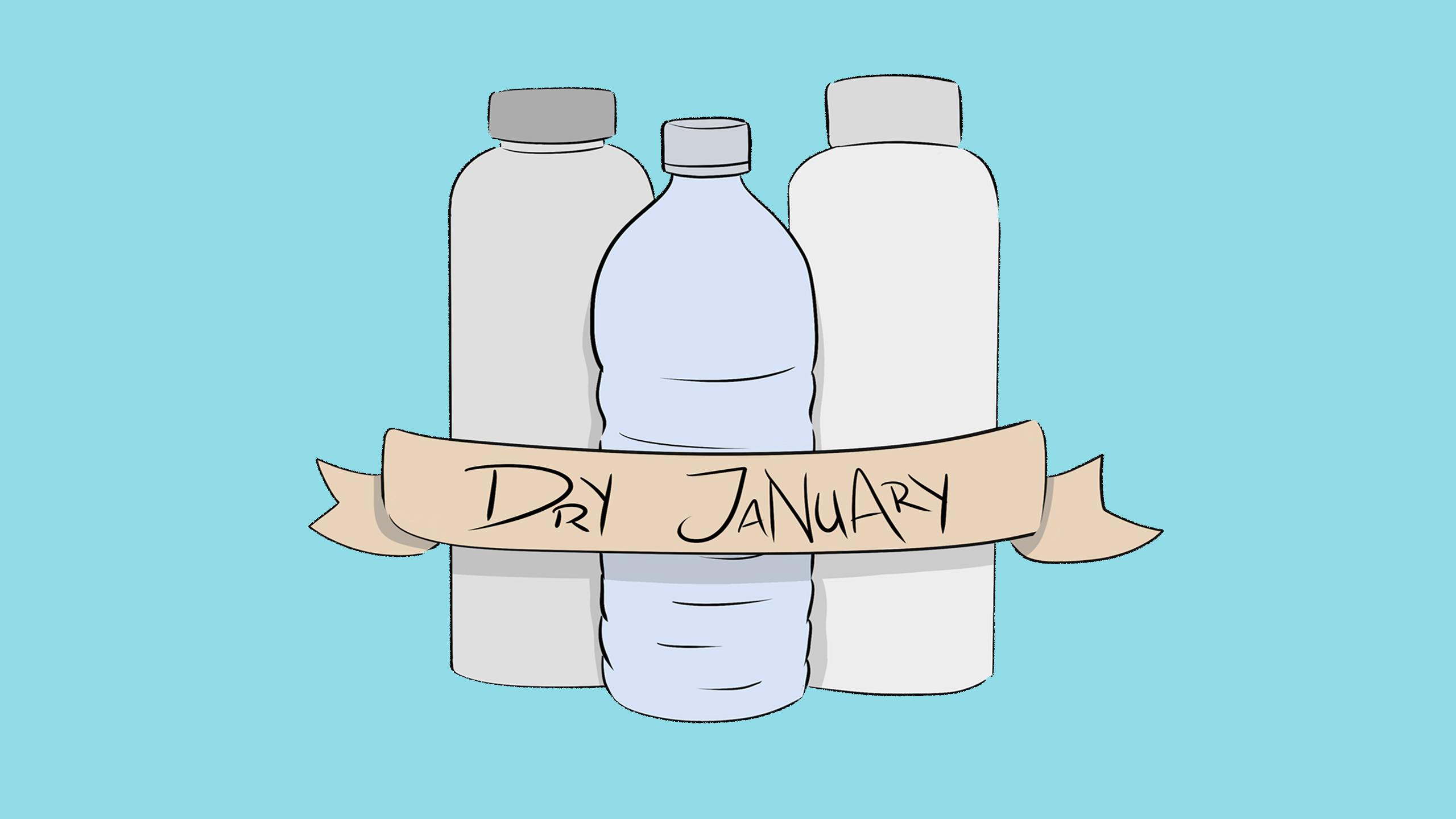By: Abbey Kelly
Some Ryerson students have said a temporary goodbye to alcoholic beverages in the new year, opting for a sober start to 2020.
For fourth-year journalism students Lexia Khan, staying sober this January is her way of getting “back on track” after the holidays.
“I think that in December, a lot of people just go overboard in terms of drinking, partying, eating,” Khan said. “I felt that I was spending a lot of my time being hungover rather than being productive.”
Evan Listro, a fourth-year global management student, is also keeping January alcohol-free. “I just found things got a little carried away for me and I wanted to take a break and focus on my studies and other things,” he said.
When having a night out, he takes on the role of the designated driver, and sticks to cranberry sodas or cranberry and sprite.
Listro found it especially difficult staying sober in heavy drinking environments, but wanted to stay true to his sobriety. But, those who were close to Listro understood staying sober and did not judge his choices.
If you are thinking of taking on a sober month, whether it be January or the next, there will be differing opinions on whether it’s a good idea or a waste of time, as Listro was soon to find out.
“The idea is to stay away from people, places and things that would trigger wanting to drink heavy,” Listro said. “Some people would ask me why I’m not drinking… some wanted me to drink with them to make them feel better.”
But there can be benefits to either a reset or going off booze for good. In Listro’s case, exercising, reading, playing more drums and basketball have all increased their presence in his day to day life.
As for Khan, the benefits of having a sober month was also felt previously in September. Khan began to feel more energized and less anxious, and now she says she “feels a lot more healthier, my skin is clearer.”
Khan said exercise is a method she uses to avoid drinking, as it tires her out so she goes to sleep earlier. She also goes to the movies or dinners at quieter restaurants, or has a girls night in.
But drinking throughout the semester isn’t uncommon with university students.
According to a Spring 2016 survey by the National College Health Assessment, 69.3 per cent of post-secondary students reported any use of alcohol within the last 30 days preceding the survey.
Approximately thirty-five per cent reported having five or more drinks of alcohol at a sitting over the span of the last two weeks.
For those who fear they may be left out when having a sober month, Khan says the fear practically doesn’t exist for January.
“No one really has that fear of missing out in January because everything’s already been done,” she said, making January in her eyes the best month to do the trend.
“Just simply balance my life with other activities and I found I had much less late nights,” said Khan.
However, with Listro on exchange in Scotland, he doesn’t plan to fully stick to his sober months.
“I don’t think I plan on staying [completely] sober my whole time here,” said Listro. “But I do intend on having a healthy balance.”
As he made the transition from Toronto to Scotland, he found that there is quicker and closer access to alcohol than back home.
“The convenience store on campus sells liquor, I’d be lying if I didn’t say I’d noticed,” said Listro
At the end of the day, Listro found that with sobriety came with a better lifestyle that had positive repercussions.
“I was healthier and saved a ton of money,” said Listro.













Leave a Reply